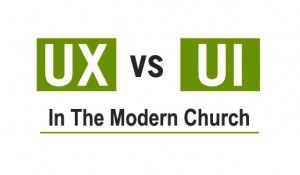Miguel Labrador's Blog, page 7
October 28, 2013
In my head, I’d probably call it ‘Apostolic Discipleship,’ but…
 I was talking to a friend today about evangelism and discipleship in diverse contexts. We spoke of successes and failures, movements and mind-shifts, and of laying down and tearing up foundations. We laughed at our mistakes and lamented at some of the directional decisions we’ve made along the way. I briefly described our evangelism/discipleship process to him and he said;
I was talking to a friend today about evangelism and discipleship in diverse contexts. We spoke of successes and failures, movements and mind-shifts, and of laying down and tearing up foundations. We laughed at our mistakes and lamented at some of the directional decisions we’ve made along the way. I briefly described our evangelism/discipleship process to him and he said;
“I’ve never heard about anyone
doing it that way before!”
It occurred to me, that while I’ve alluded to this process before in some previous blog posts, I’ve never really given it focused written attention. In my head, I’d probably call it “Apostolic Discipleship,” but since the word “apostolic” causes church cringes, I’ll refer to it as:
“Elemental Ephesians 4:11 Evangelism/Discipleship.”
Let’s break it down…
It’s Elemental because we seek to utilize what we see as different gospel components or “elements” to effect change in different contexts.
It’s Ephesians 4:11 because we believe that text essentially lays out those components in the context of evangelism and discipleship.
It’s Evangelism/Discipleship because we believe that splitting the two components renders the gospel message inert.
Since “Elemental Ephesians 4:11 Evangelism/Discipleship” is way too geeky, I’ll refer to it as EE4ED from this point on. Yeah, like that’s not geeky…
Let me tell you how EE4ED evolved. After becoming missionaries to the Cloud Forest Region of Ecuador, we quickly came to terms with the ineffectiveness of conventional evangelism and discipleship methodologies. Winning souls wasn’t producing saints. What looked good on paper wasn’t imprinting and implementing the kind of gospel transformation written about in the scriptures. Something had to change. Godly innovation was birthed in our desperation.
After many personal and often painful mind-shifts, some of which I detailed in this book, our approach to evangelism/discipleship changed drastically. Now, what I’m going to lay out in the rest of this article is not a solid science or a model to be copied. It is, however, a process which continues to yield fruit, and in part, explains our 11+ generations deep of disciple making and nearly 30 active community fellowships. (Code Talk for “Church Plants”)
In what we call “Discipleship Group,” which happens in our home once a week, a core group of believers on mission come together to discuss, debrief, and dissect our kingdom work. At one of those meetings, we were going to discuss Ephesians 4:11-13, the existence of modern-day apostles and prophets in the church, and how it relates to God’s mission. Knowing in advance that talking about the validity of apostles and prophets in the modern-day church would cause some kick back, I simply said that every believer is, in some way, gifted with the characteristics of an apostle, prophet, teacher, pastor, or evangelist. I further suggested that these characteristics were vital to our mission as a group and made the proposition that we must not only identify those characteristics within ourselves, but we must determine those characteristical needs within the communities we’re working in and, in a sense, match them up.
To explain it more simply, I suggested that when we go out to do mission in a new or existing community, when we assess that community’s spiritual condition, we must always walk away asking ourselves “What is the greatest Ephesians 4:11 need of this community?” Do they need someone with prophetic characteristics, apostolic characteristics, pastoral characteristics, teacherly characteristics, or evangelistic characteristics? By asking ourselves this question of the community at large and identifying those characteristics as individuals within our group dynamic, we were able to match up the needs of the people with the giftings that we individually have.
In fleshing this out, we discovered that the gospel itself has characteristically apostolic, prophetic, didactic, evangelistic, and pastoral components. I’ll lay out what those components look like in Part II of this series. We no longer talk about whether or not apostles and prophets “exist” in the church anymore today, we just act like they do. We will continue to act that way, equipping his people for works of service, so that the body of Christ may be built up until we all reach unity in the faith and in the knowledge of the Son of God and become mature, attaining to the whole measure of the fullness of Christ.
Look for Part II later this week. If you’re not subscribed to my blog, you can do that here or follow me on facebook or twitter. Normally, this is where I would ask a few questions. But, I thought that I would give you the opportunity to ask me some. Do you have any questions?
(Visited 114 times, 55 visits today)














CommentsAlways thought that the apostolic gifting is rejected because ... by Jay CookinghamThanks Katie, Yep, the word “office” is a terrible ... by MiguelThanks Jay, When it boils down to it, it is simply that, ... by Miguel14 Shifts in Disciple Making by MiguelThanks Mark, Yeah, I'm amazed how it dispels the argument of ... by MiguelPlus 4 more...Related StoriesMaybe Luke 10 Isn’t The Best ‘Missional’ Text.The Dog Ate My Short-Term Missions Homework.3 Words That Will Make You Re-Think Your Role In Mission
October 26, 2013
Organic Learning Within The Church.
 You may have heard of “Organic Church.” Most of the time it’s positioned as contrary to “Institutional Church.” If that’s confusing, then let’s look at a couple of cursory descriptions of each and take it from there.
You may have heard of “Organic Church.” Most of the time it’s positioned as contrary to “Institutional Church.” If that’s confusing, then let’s look at a couple of cursory descriptions of each and take it from there.
Institutional church, at its core, is the most visible and culturally recognizable manifestation of organized religion that finds its primary definition and purpose in the weekly Sunday morning meeting. It has been the accepted expression of the church for most believers since way before the reformation. Granted, the church has changed greatly since Martin Luther and others, but it’s still only a modification of the Roman Catholic institutional church.
The theology is radically different but many of the practices remain the same: a formal and rigidly scheduled weekly gathering, mute observance by most of the church during that gathering, a ritualistic observances, a clerical class that is distinguished from the laity by extra-Biblical educational standards, and a focus on performance instead of mutual edification. The work of the ministry, is carried out by the few instead of the many.
Organic Church doesn’t seem to have a “core.” It’s also known as “simple church,” or even “house church.” It can not be denied that there is a growing trend within Christendom away from institutional expressions of church to more organic ones. Here are two explanations of what “Organic Church” is:
1. Neil Cole ~ I have come to understand church as this: the presence of Jesus among His people called out as a spiritual family to pursue His mission on this planet.
2. Frank Viola ~ By “organic church,” I mean a non-traditional church that is born out of spiritual life instead of constructed by human institutions and held together by religious programs. Organic church life is a grass-roots experience that is marked by face-to-face community, every-member functioning, open-participatory meetings (opposed to pastor-to-pew services), non-hierarchical leadership, and the centrality and supremacy of Jesus Christ as the functional Leader and Head of the gathering.
I think the difference between the two expressions is clear enough. But, this post is not about the merits of either expression of church. I wanted to lay the ground work beforehand to discuss a more organic approach to teaching and learning.
Organic learning is learning that occurs in a natural state. It is learning that develops from within as one goes and grows with others. Isolation from community limits learning. It’s unnatural to learn alone. The motivation to learn and the search for answers is placed within the regenerated heart of any believer. To those watching from outside, it may appear as play, or foolishness, or even disobedience., but satiating curiosity has been encoded into the genetic DNA of every believer. Creativity and problem solving is nurtured when outside forces are minimized. The desire to structure anthers learning often squelches it. Christ’s teaching and those that learned from Him, flourished while life happened. In Him we live and move and have our being. (Acts 17:28) Organic learning costs very little and it’s potential resources are vast.
Institutional learning is any learning that attempts to modify the organic. It’s often identifiable by attempts to control what, how, or when a believer will learn. Institutional learning could be a textbook, lecture, church-imposed curriculum, or the myriad of other methods or tools Christendom uses to attempt to teach its adherents. Institutional learning often comes at a great financial cost and always has limited resources. Certain sections within the church are always attempting to “corner the market” on resources etc. Equipping others for the work of the ministry becomes “training.” Discipling others becomes “coaching.” It always seems to boil down to a sub-set of the church teaching the rest of the church what that sub-set thinks the rest of us should know. Institutional learning also seems to slow down, impede, and discourage mission.
I’m not saying that some structured or traditional learning within the church isn’t warranted or needed, but I have to wonder if it should be placed at the core. When we say that there are varied and valid expressions of church, I think we’re also implying that there are many states or forms of the church too. Like any living organism, the church’s form should arise from its nature. A few questions:
Is the church by nature, or by design, organic or institutional?
If we say that it’s organic, then shouldn’t learning and teaching within the church be primarily organic?
What would an organic learning environment look like to you?
(Visited 30 times, 23 visits today)













 Related StoriesUX vs. UI In The Modern Church7 Debilitating Lies Of The ‘Covering Doctrine.’The Dog Ate My Short-Term Missions Homework.
Related StoriesUX vs. UI In The Modern Church7 Debilitating Lies Of The ‘Covering Doctrine.’The Dog Ate My Short-Term Missions Homework.
October 25, 2013
Nunchaku Christianity? Violence and ‘The Use of Force,’ in a Church Culture.
 There has been much talk of pacifism within Christian circles of late. In response, the often shocking and reactionary Mark Driscoll recently said, “Jesus is not a pansy or a pacifist; he’s patient. .” The article, which you can read here, attempts to make the case for the physical use of force based on an argument from Exodus 20:13, “You Shall Not Murder.”
There has been much talk of pacifism within Christian circles of late. In response, the often shocking and reactionary Mark Driscoll recently said, “Jesus is not a pansy or a pacifist; he’s patient. .” The article, which you can read here, attempts to make the case for the physical use of force based on an argument from Exodus 20:13, “You Shall Not Murder.”
One of the conclusions he draws from that argument is that “If someone tries to murder you, and you defend yourself with lethal force in order to protect the lives of you and your family, that’s not murder.” I happen to agree with him on that particular point, but it’s not the purpose of this post.
The pacifist/non-pacifist argument has been around for quite some time, and I don’t see a unified stance coming from the church until “all things are reconciled.” (Colossians 1:19-20) One thing that bothers me in the conversation is what I see as a misuse of the word “violence.” After all, “violence never solved anything.” Right?
I don’t particularly think that violence and the physical/spiritual/mental use of force should be put on equal footing. In other words, while they may overlap at times, they are not synonymous.
A quick word study of “violence” in Logos Bible Software shows that violence is: that which destroys, injures, oppresses, rejects, subjects, violates, treats, forces, breaks, breaches, profits, or exposes, in a malicious manner.
Did you catch that last part? ”In a malicious manner?” There is a malicious use of force which I would consider violence. But, there are situations in which I think the use of force in non-violent. For many who narrowly define the word violence, this proposition would simply be unacceptable. I understand . But, many who always equate violence with “the use of force,” also practice violence of their own. How? First, by acting superior because they think they are intelligent enough or spiritual enough not to be violent as defined by their self-imposed definition of violence. Secondly, they often use force, mental/spiritual/physical to tell you how you should live.
I can’t help but think that God used infinite physical force to crush his own Son for the benefit of others (Isaiah 53:10), Jesus will use infinite physical force in the judging of the world (Rev. 14:14–20), and the Spirit has used infinite deadly force in this church age. (Acts 5:1-11)
I won’t push those arguments to far, because it will lead us away from this post’s intent. Take a look at some familiar quotes:
“Nothing good ever comes of violence.” ~ Martin Luther “
“Peace cannot be achieved through violence, it can only be attained through understanding.” Ralph Waldo Emerson
“I object to violence because when it appears to do good, the good is only temporary; the evil it does is permanent.” ~ Gandhi
“People try non-violence for a week, and when it ‘does not work’ they go back to violence which hasn’t worked for centuries.” ~Theodore Roszak
“If you try to fix violence with violence, you do nothing but create violence.” ~ Tom DeLong
I think most of us would agree with the quotes above. Now consider these:
“Indiscriminate violence and mindless violence doesn’t solve anything,” ~ Friedman
“Violence, naked force, has settled more issues in history than has any other factor, and the contrary opinion is wishful thinking at its worst. Nations and peoples who forget this basic truth have always paid for it with their lives and freedoms.” ~ Robert A. Heinlein
“And from the days of John the Baptist until now the kingdom of heaven suffers violence, and the violent take it by force.” ~ Jesus
The second set of quotes is characteristically different from the first. I think the difference lies in whether or not the use of physical force is equated with violence in every case. A bit of a disclaimer: I am an ex-soldier, I am an ex-police officer, and an ex-bouncer. I have been all of these things in my Christian life. I believe, while difficult, that physical force can be used without being violent. I believe that physical force up to and including death can be used without sinning. Today, I am not “vested” in this theological stance until someone tries to hurt someone else I love. I don’t consider these hypothetical people my enemies, and in fact will most likely not consider them my enemies if they have some future intent to harm those close to me. I would just neutralize the situation, to the best of my ability, to eliminate the threat.
That said, I also believe situation dictates. There are times, I believe, when it’s holy, and righteous, and just to “turn the other cheek.” Likewise, I believe there are times when it’s holy and righteous, and just to prevent someone from hitting the cheek of another. The theological hardliner will not allow the Holy Spirit to lead in a situation requiring the use of physical force. I also don’t believe that all believers should run out and get pair of Nunchucks. As to just wars, justifiable homicide, and the like, I leave it up to you. But, I do have two questions:
1. Is “violence” and the “use of physical/mental/spiritual force” the same thing?
2. If you say yes, then was God the Father Violent to Jesus, His Son? If no, then when is the use of physical force against another biblically warranted?
(Visited 39 times, 6 visits today)














CommentsYour definition of violence is an interesting one, Miguel. And, ... by GaryFPattonRelated StoriesThe Strength Of The Argument.7 Debilitating Lies Of The ‘Covering Doctrine.’Is the Church’s Foundation Still Being Laid? Just Answer The Question! Yes or No?
October 24, 2013
The Prophecies, The Prophetic, and The Prophet. Unwarranted Mind-Meld?
 Prophets, prophecies, and the prophetic are not the same things. They are different things. The first are God-given people for the ongoing equipping, maturity, and unity of the church. The second are activities of the church’s members. The third is a characteristic description of what may include the other two and more. Melding them together so as to negate all three is hermeneutically unreliable. Denying them individually is biblically unwarranted.
Prophets, prophecies, and the prophetic are not the same things. They are different things. The first are God-given people for the ongoing equipping, maturity, and unity of the church. The second are activities of the church’s members. The third is a characteristic description of what may include the other two and more. Melding them together so as to negate all three is hermeneutically unreliable. Denying them individually is biblically unwarranted.
Do you agree with that statement? Why or Why Not?
(Visited 30 times, 30 visits today)














CommentsFor almost 40 years, I've watched as terms like “preacher”, ... by JonathanRelated StoriesIs the Church’s Foundation Still Being Laid? Just Answer The Question! Yes or No?‘God is Raging in the Prophets’ Words.’ ~ HeschelA Two Word Missional Addendum To A Karl Barth Theology Quote That Puts It Over The Fence!
UX vs. UI In The Modern Church
 I’ll have to admit that I’ve been a little slow on the uptake. I’ve just noticed that many tech companies, web designers, and even social media outlets have stopped using the designation UI (User Interface) and switched to UX (User Experience). While they’re still debating, or defining those terms and how they apply to their specific contexts, I’d thought it would be fun, albeit it a bit geeky, to bring the discussion into the modern church context.
I’ll have to admit that I’ve been a little slow on the uptake. I’ve just noticed that many tech companies, web designers, and even social media outlets have stopped using the designation UI (User Interface) and switched to UX (User Experience). While they’re still debating, or defining those terms and how they apply to their specific contexts, I’d thought it would be fun, albeit it a bit geeky, to bring the discussion into the modern church context.
First, let’s consider the difference between the two:
The quality of a user’s experience influences that person’s level of trust and confidence in your church or religious organization and compels them to act (or not act).
The interface, in turn, gives them a means by which to act.
In other words, while the UI is a point of interaction, UX is the interaction itself.
If you’ll allow me a little latitude, I’ll say that the experience of church, as commonly understood, is one that should build trust, give confidence, and compel its congregants to mission.
Interfacing with others gives congregants the means to enact mission.
A few problematic words:
”User,” is replete with assumptions, and probably is not the best word to describe a member of the church. I suspect that many churches see their members as “users” and are always trying to refine their church product to increase UX and UI, but it’s probably a bad idea to think in this way.
“Experience,” is laden with emotion often based on subjective assessment. How one feels about a church service should be secondary to how one lives a member of the church.
“Interface,” is almost too impersonal. It implies easy disconnection or the readily available opportunity to disengage.
So, just one question:
What two letter acronym would you use to describe what the church should strive for? Explain your answer.
(Visited 31 times, 31 visits today)














Comments“JI” – Jesus Interface, leading to “KX” – Kingdom ... by SondraRelated Stories7 Debilitating Lies Of The ‘Covering Doctrine.’The Dog Ate My Short-Term Missions Homework.The Strength Of The Argument.
October 23, 2013
In the Beginning was the Text, and the Text was with God, and the Text was God…
In a recent Facebook post, David Hayward aka Naked Pastor said;
“Some use the text to figure out what love means. Others use love to figure out what the text means. Totally different outcomes.”
To which, I left the comment;
“In the beginning was the Text, and the Text was with God, and the Text was God…” (John 1:1)
“And the Text became flesh, and dwelt among us, and we saw His glory, glory as of the only begotten from the Father, full of grace and truth.” (John 1:14)
A couple of questions:
1. What do you think of David’s Post?
2. What do you think my comment?
(Visited 69 times, 5 visits today)














CommentsJesus coming in the flesh was, and still is, the best ... by MiguelI wonder how the post and comment reflect on the fact that the ... by MichaelI think your comment was a very appropriate response to his ... by David WoodsI found it disconcerting that there is growing momentum within ... by AlbertI like the very first word of “In the beginning” In:) In ... by Kirk StephensPlus 3 more...Related StoriesThe Strength Of The Argument.God The Father’s Birthing MethodFracturing The Logos of the Gospel – Part II
October 21, 2013
A Two Word Missional Addendum To A Karl Barth Theology Quote That Puts It Over The Fence!
“Theology is not a private subject for theologians only. Nor is it a private subject for professors. Fortunately, there have always been pastors who have understood more about theology than most professors. Nor is theology a private subject of study for pastors. Fortunately, there have repeatedly been congregation members, and often whole congregations, who have pursued theology energetically while their pastors were theological infants or barbarians. Theology is a matter for the Church.”
Here’s the quote with my addition:
“Theology is not a private subject for theologians only. Nor is it a private subject for professors. Fortunately, there have always been pastors who have understood more about theology than most professors. Nor is theology a private subject of study for pastors. Fortunately, there have repeatedly been congregation members, and often whole congregations, who have pursued theology energetically while their pastors were theological infants or barbarians. Theology is a matter for the Church on mission.
See the difference?
What do you think?
(Visited 24 times, 17 visits today)













 Related StoriesThe Strength Of The Argument.Is the Church’s Foundation Still Being Laid? Just Answer The Question! Yes or No?7 Debilitating Lies Of The ‘Covering Doctrine.’
Related StoriesThe Strength Of The Argument.Is the Church’s Foundation Still Being Laid? Just Answer The Question! Yes or No?7 Debilitating Lies Of The ‘Covering Doctrine.’
October 19, 2013
The Strength Of The Argument.
 My truth, even before coming to faith, has always been rooted in the “strength of the argument.” I can remember reading Carl Sagan’s “Cosmos,” at a very young age and finding his propositions concerning “fourteen billion years of cosmic evolution that have transformed matter into consciousness,” to be powerful and convincing. In that book, he said, “If we long for our planet to be important, there is something we can do about it. We make our world significant by the courage of our questions and by the depth of our answers.” My quest was not to “make our world more significant,” no, it was much more selfish than that. I wanted to make myself significant.
My truth, even before coming to faith, has always been rooted in the “strength of the argument.” I can remember reading Carl Sagan’s “Cosmos,” at a very young age and finding his propositions concerning “fourteen billion years of cosmic evolution that have transformed matter into consciousness,” to be powerful and convincing. In that book, he said, “If we long for our planet to be important, there is something we can do about it. We make our world significant by the courage of our questions and by the depth of our answers.” My quest was not to “make our world more significant,” no, it was much more selfish than that. I wanted to make myself significant.
It was the age-old double-edged question, “Who am I?” and “Why am I here?”
Burned into my memory was the day I awoke to my dog scratching fiercely on the wall of my bedroom. He was my faithful companion. He was very agitated and would not stop, even after several harshly spoken commands. Something was wrong… I got out of bed to reprimand him and just then a flame whipped around the doorway to the kitchen and brushed the side of my face. I gasped. The air that I took into my lungs was so hot that it knocked me down to the ground. Dazed, I turned to see that the entire kitchen was in flames. In a moment of panic, I remembered that my sister was still home as it was not yet time for school. I crawled into a nearby hallway and heard the sound of the television coming from our upstairs den. I screamed up to her “GET OUT OF THE HOUSE! IT’S ON FIRE!”
After she fled through an unfinished part of the house, and I knew she was safe, I turned back towards the flames to see if I could rescue some of the others pets we had, but there was no going back. I grabbed a blanket, threw it over my head and body, and made my way out. By the time I got to safety, I turned and saw that the whole house was engulfed in flames. I remember speaking out loud in that moment and asking “Why am I still here?”
I didn’t know it then, but my quest for truth increased exponentially on that day. I hated school, but I loved the pursuit of knowledge. My teachers always told my parents that I could do so much better in school if “I just applied myself.” Well, fast forward a few years, and I’m serving in the military. I had not yet had that “crisis of faith,” and thought I that I’d had it all pretty much figured out. I saw, heard, and read all the arguments, chosen the most reasonable, settled into “who I was,” and committed to continue searching for the answer to the question “Why I was here?”
The idea of God wasn’t unfamiliar to me, but the arguments for His existence never seemed strong enough. I wanted to be argued into faith. I wanted to be convinced that God existed. I wanted proof. Then I met a man who was a Christian. His life echoed his words. While I dismissed his propositions, I was convicted by his actions. I wanted to challenge his faith, I wanted to debate the merits of his claims, but he would have none of that. Instead, we talked, we became friends, and I started to read his life. I also started reading the Bible.
It was while reading the parable of the wheat and the tares (Matthew 13:24-30), that something changed in me. It was the day I was born again. For the next six months, I read everything I could to dissuade me from being Christian. I read the Muslim Koran, the Buddhist Tripitakas, and the
Hindu Bhagavad Gita. I read the works of the “cults” like Jehovah’s Witnesses, Mormons, and even the Baha’i Faith. I also ventured into the occult. No proposition or argument from any of those works could convince me that Jesus wasn’t God, and that He was the author and finisher of my newly found faith. (Hebrews 12:2)
After leaving the military and being firmly convinced of my faith, as to the truth of it, I returned to school. I went to Bible College and then Seminary. Dissecting faith arguments became a passion. Argumentation was a skill, an art, and I wanted to master it. I had the truth, and I wanted everyone else to be convinced of it. This, finally, I thought, was the answer to the question of “why I was here.” Well, as they say, “knowing the truth and living the truth are two very different things.” Throughout my Christian teeth cutting years I made a lot of mistakes and hurt people. The strength of my life argument didn’t match my verbal propositions or arguments.
Solomon said, “with much knowledge comes much pain.” (Ecclesiastes 1:18) He was right. Today, I still don’t have it all figured out, but I suppose that most would say that I’m a kinder and gentler soul. But, and the point of all this, is to say that I still believe in the strength of the argument. I still believe Christianity needs to be a conversation. No longer can priests bind and gag people and sacrifice them on the altar dogmatism. Christianity is a conversation. Christianity is an argument. Error always binds, but it is the truth that sets one free (John 8:32)
“Christianity is a Conversation.
Christianity is an Argument.”
My Christian faith has gone through many evolutionary phases. Some of the positions I now take are directly opposed to those I once held. Much to my wife’s dismay, I still operate on the basic principle that “everything is open to debate.” I still find that most people are very uncomfortable with my questions regarding their faith, and “theological” positions, but especially my never-ending stream of the question, “but, what about this?”
When it comes to matters of faith, I still struggle with discrediting and dismantling a person’s argument while not disassociating, dismissing, or diminishing the person themselves. Don’t get me wrong, I love a good debate, but I’ve found that, like the man who led me to faith, they are of little transformational value. So, now, I just ask a lot of questions. I hope that my questions can guide others into truth, but realize that everyone has an inner trajectory which is set by their own internal propositions and arguments. I’m sorry that I can’t take any matters of faith at “face value,” and must crunch any and all data through my mesh, but It’s how I operate. It’s how God made me. I don’t like stirring up the pot or causing trouble, but I do find contentment in provoking others in matters of faith. It is, why I think, I’m still here.
I’ll maintain a theological position ardently until someone can present a better argument. The funny thing is, someone’s always presenting a better argument. Sometimes I’ll even argue myself out of positions I’ve held tenaciously before. When I see groups of Christians dismissing and diminishing other people within Christendom it makes me ashamed. It’s even worse when the Church strings sectarian barbed wire throughout what’s supposed to be Christ’s Kingdom. It reminds me of the insignificant self I didn’t like very much.
I do have to wonder though, where is the holy argumentation? Where are those whose lives are a biblical cross-reference or commentary? Where is the fruitful coalescing and conversing within Christ’s body? Where are those who can demolish arguments and every pretension that sets itself up against the knowledge of God? (2 Corinthians 10:5) Where are those who can do it in a Christlike manner? Why has the multiplication of disciples that leads to unification been replaced by the division which convinces each sub-group that they are “the remnant” protecting the truth?
I’m still looking to be convinced in certain matters of faith. I need to be convinced by those who claim to follow Christ, not by force, or manipulation, or emotion, or self inflating statements at the cost of others, but by the strength of their arguments.
After an article like this one, I usually ask a few questions. But today, I have only one.
What are some practical ways that Christians can “agree to disagree” without the varying degrees of disassociation (disfellowship) often associated with argumentation?
(Visited 78 times, 40 visits today)














CommentsNot sure if you saw my contributions. To say that I was and ... by Lisa RobinsonBeautiful! by Lisa RobinsonGood article. I think the best argument on faith I have ever ... by Brian ConsidineRelated Stories3 Words That Will Make You Re-Think Your Role In Mission7 Debilitating Lies Of The ‘Covering Doctrine.’Maybe Luke 10 Isn’t The Best ‘Missional’ Text.
October 18, 2013
Is the Church’s Foundation Still Being Laid? Just Answer The Question! Yes or No?
 Okay, I know it’s not as simple as a “yes,” or “no,” but let’s consider the following:
Okay, I know it’s not as simple as a “yes,” or “no,” but let’s consider the following:
In the Darby translation of the bible, Ephesians 2:20 reads this way:
“being built upon the foundation of the apostles and prophets, Jesus Christ himself being the corner-stone,”
In the New American Standard Bible is reads this way:
“having been built on the foundation of the apostles and prophets, Christ Jesus Himself being the corner-stone,”
See the difference? In the Darby, KJV and others, “built” is present tense. In the NASB, NET, and others “built” is past tense. The tense in this verse is critical. I’m afraid that in dealing with this question, we will not be able to avoid technical linguistics. The original Greek must be considered. But, I’m also afraid that most of the interpretations of this verse arise from emotion, and carefully crafted, yet erroneous logical arguments. Now, for me at least, there’s nothing wrong with a solid logical argument. But the solidity of the foundational presuppositions in such logic must be tested. An argument can be logically valid while its conclusion remains incorrect.
Unfortunately, there’s only this one occurrence of the Greek word - ἐποικοδομηθέντες (epoikodomēthentes) “having been built on the foundation,” or “And are being built.” It is an aorist participle passive verb. More simply put, it’s an action that’s happened in the past of which we can not take part in. Again, it’s passive to those in Paul’s audience.
There is, however a very closely related verse that uses a slight variation on the word in Jude 1:20 - ἐποικοδομοῦντες (epoikodomountes) “are being built up.” Jude 1:20 reads this way;
“But you, dear friends, must continue to build your most holy faith for your own benefit. Furthermore, continue to pray in the Holy Spirit.” In this case, the verb is present, participle, and active. In other words, the audience takes part in what has happened and what will continue to happen. A few questions:
1. Has the foundation of the church been laid, or is it still being laid? Is it past or present tense?
2. If the foundation has been laid (past tense) by the apostles and prophets, then does that suggest that apostles and prophets are no longer needed in the church today?
3. Is it reasonable to suggest that like a house owner who wishes to expand his or her home, they must lay a new foundation upon which to connect and build? Is it reasonable to suggest that this might be the same with the household of God? It it reasonable to translate Ephesians 4:11,12,13 in this way;
“So Christ himself is still giving the apostles, the prophets, the evangelists, the pastors and teachers, to equip his people for works of service, so that the body of Christ may be built up and connected in the faith and in the knowledge of the Son of God and become mature, attaining to the whole measure of the fullness of Christ.”
(Visited 16 times, 16 visits today)













 Related Stories3 Words That Will Make You Re-Think Your Role In Mission7 Debilitating Lies Of The ‘Covering Doctrine.’The Lost Art of Pity
Related Stories3 Words That Will Make You Re-Think Your Role In Mission7 Debilitating Lies Of The ‘Covering Doctrine.’The Lost Art of Pity
October 17, 2013
The Lost Art of Pity
 “I DON’T WANT YOUR PITY!” or ”DON’T YOU DARE PITY ME!” Has anyone ever said either of those to you?
“I DON’T WANT YOUR PITY!” or ”DON’T YOU DARE PITY ME!” Has anyone ever said either of those to you?
Usually, it’s a reaction based in some perceived humiliation or resentment. Mostly though, I think it’s the church’s fault because she’s forgotten the Christian art and duty of pity.
Disclaimer!
The next section of this post
may contain some objectionable language.
There’s a band called “Far From Finished,” who recorded a song titled “Bastard’s Way,” which has the following chorus;
“I don’t need your pity and I don’t need your bullshit lies
And I don’t’ want your opinion on the faults of my life
You can talk all you want but I won’t hear a word you say
I’m an unforgiving prick and I’m just living the bastard’s way”
Pretty harsh, I know, but I think it captures how most people feel about “pity.”
Even Clubber Lang (Mr. T), pitied the fool.”
“PITY” – According to the Holman Illustrated Bible Dictionary, is “sympathetic sorrow toward one facing suffering or distress.”*
Pity was expected of friends (Job 19:21), kin (Amos 1:11), and God (Ps. 90:13).
Enemies lacked pity (Psalm 17:10; Psalm 69:20; Isa. 13:18; Jer. 21:7).
Those guilty of idolatry, murder, or false witness were to be denied pity (Deut. 7:16; 13:8; 19:13).
The images of the father and shepherd illustrate God’s pity (Ps. 103:13; Isa. 49:10).
God pities the penitent (Judg. 2:18), the weak and needy (Ps. 72:13), Jerusalem in ruins (Ps. 102:13), those who fear God (Ps. 103:13), and the exiles (Isa. 49:10).
In judgment God withholds pity from God’s people (Jer. 13:14; 20:16; Lam. 2:17; 3:43; Ezek. 5:11).
Ezekiel pictured Jerusalem as an unpitied child denied the most basic postnatal care (Ezek. 16:5).
Hosea illustrated the fate of Israel with Loruchamah, a child’s name meaning “not pitied” (1:6; 2:23).
Pleas for pity are a common feature of healing narratives (Mark 9:22; Luke 17:13).
Pity moved Jesus to heal (Matt. 20:34).
Jesus used a compassionate Samaritan as an unexpected example of active pity (Luke 10:33).
Pity, or the active concern for those in need serves as evidence that one is a child of God (1 John 3:17). Pity is not to be lashed out at. Pity is to be sought after. No one is above being pitied. I think the challenge for most of us is how to practice biblical pitying. That said, here are a few questions:
1. How do you engage someone whom you think is pitiful? What mental steps do you take?
2. How is pity different from empathy or sympathy or compassion?
3. If you are inclined to reject the pity of others, what may it indicate about your spiritual condition?
*Brand, C., Draper, C., England, A., Bond, S., Clendenen, E. R., & Butler, T. C. (Eds.). (2003). Pity. In Holman Illustrated Bible Dictionary. Nashville, TN: Holman Bible Publishers.
(Visited 13 times, 1 visits today)














CommentsApproach circumstances with prayer, humility, patience, and yet ... by Kirk StephensRelated Stories7 Debilitating Lies Of The ‘Covering Doctrine.’God The Father’s Birthing MethodMaybe Luke 10 Isn’t The Best ‘Missional’ Text.





